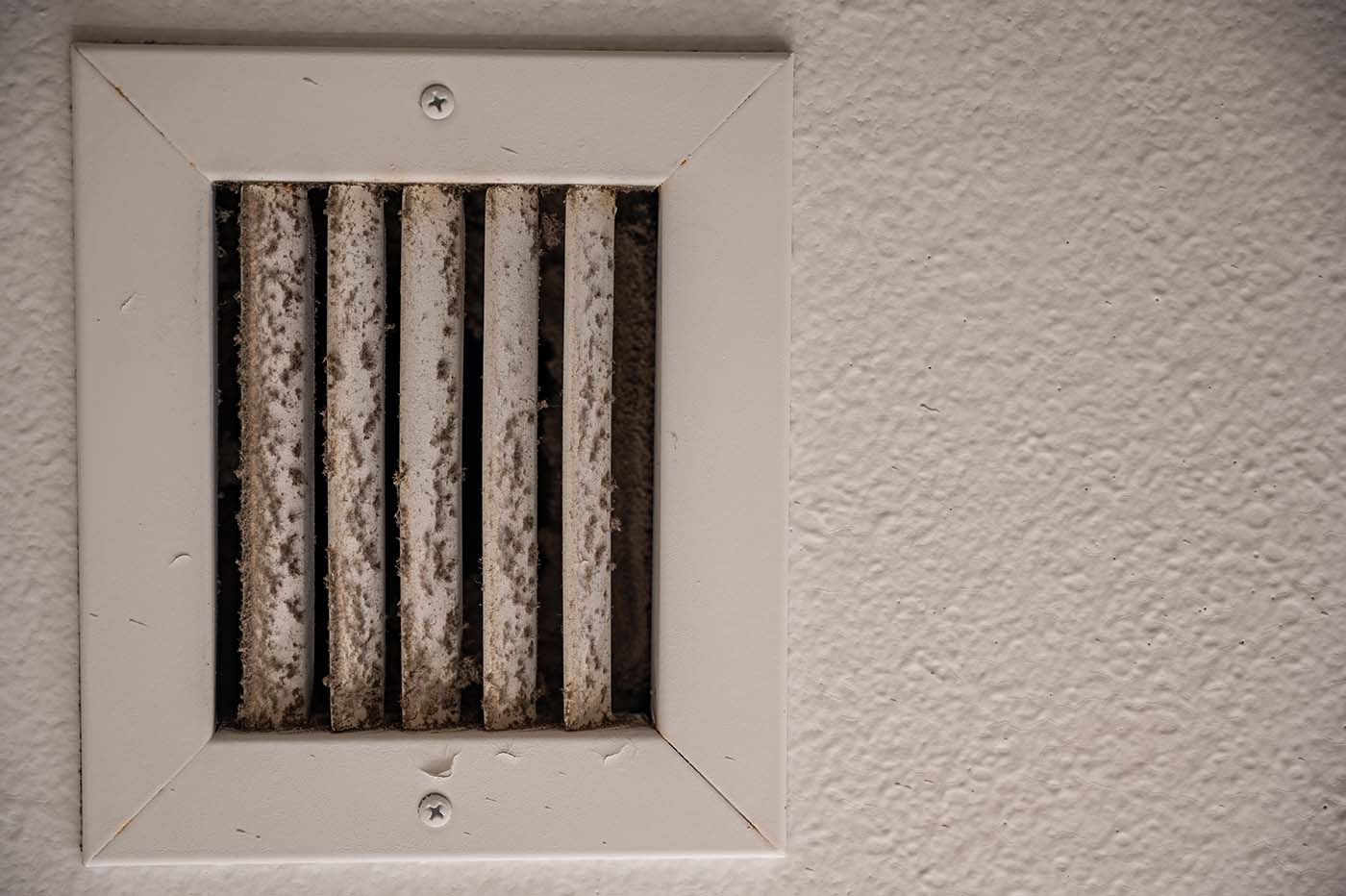The presence of water in your HVAC system is obviously a bad sign, and it can be a breeding ground for mold. Now, consider the amount of water winter brings; be it through snow, sleet, hail, rain, or ice. Your HVAC system is not impenetrable, and thus it is susceptible to leaks. Therefore, it can truly fester in the wintertime. Here’s how you can combat mold in your HVAC system this winter.
Clear All Standing Water
With the potential of leaks and pooling condensation in your HVAC system, standing water can be a breeding ground for mold and legionella. That’s why it’s important to clear all standing water in your HVAC system — including around your air ducts and vents. If you find any puddles of water inside your HVAC system, clear them out immediately so that mold does not begin to grow there.
You may have noticed that you have a drain pan for a reason, and that is to collect the standing water. However, it’s important to keep an eye on that to make sure it doesn’t overflow. The excess moisture is perfect for mold growth. It’s also good practice to clear away any leaves or other trash that may have accumulated along gutters or downspouts so that they won’t clog up with debris during heavy rain and snowstorms this winter season — as they can damage your HVAC system.
Replace Air Filters

Air filters serve as the gateway between you and healthy indoor air quality. In fact, air filters even prevent you from inhaling dangerous mold particles (for the most part) — so it’s important to change them regularly. You should replace your air filter once every three months (depending on how often you use your HVAC system) to keep air flowing freely through your vents.
You can tell if you need to replace them if they show signs of wear and tear, including holes, dust/dirt buildup, or even if it smells.
Consider Insulation to Combat Mold
It’s important to note that insulation can improve the efficiency of your HVAC system and help prevent mold growth. It also keeps your home warmer in the winter and cooler in the summer, which will reduce your energy costs. In fact, Indiana Mold Remediation notes that fiberglass insulation is “naturally mold resistant,” though mold can eventually penetrate the insulation after a long period of time.
Call an HVAC Technician
If you have any reason to believe that any bacteria is growing in your HVAC system, do not delay in calling an HVAC technician to inspect and clean it. Mold can be dangerous and can cause allergic reactions, lung infections and respiratory problems. Although the symptoms of these problems may not be immediately noticeable, they will likely become more severe if left untreated.
XTRAIRE’s Commitment to Combating Mold
XTRAIRE’s team of trained technicians are always happy and ready to help our customers. With winter looming, it’s important to tackle any HVAC problems — including mold growth — before the weather changes. To learn more about how we can help, please visit XTRAIRE’s website and contact us for more!
